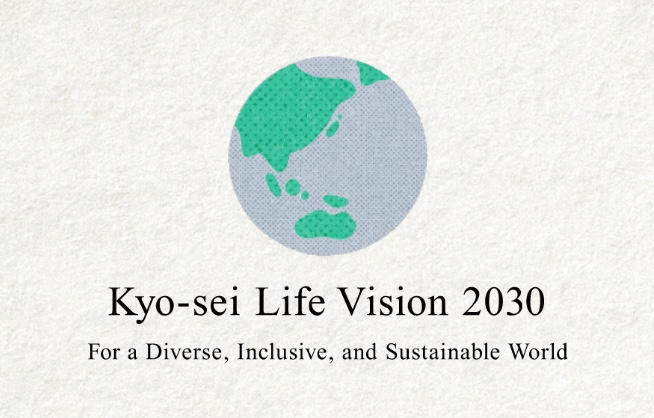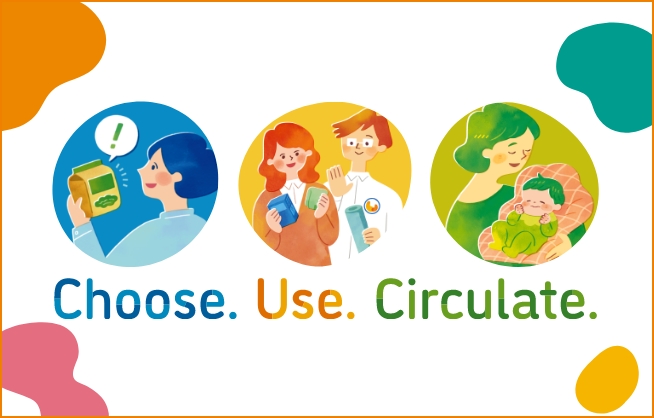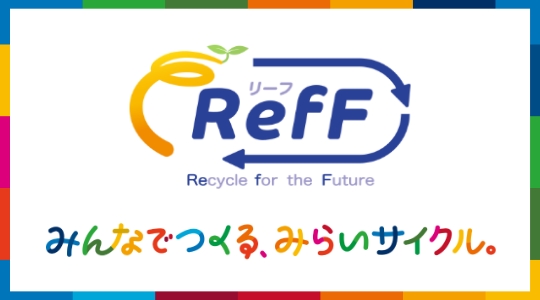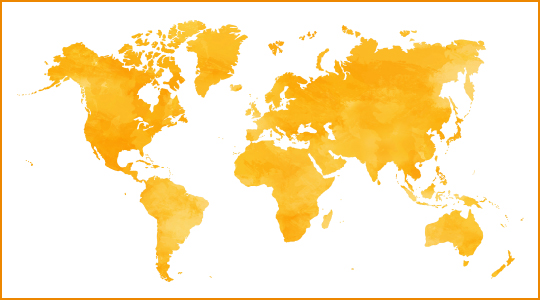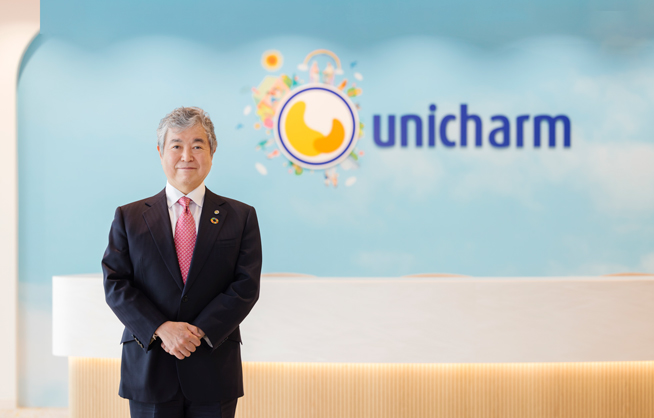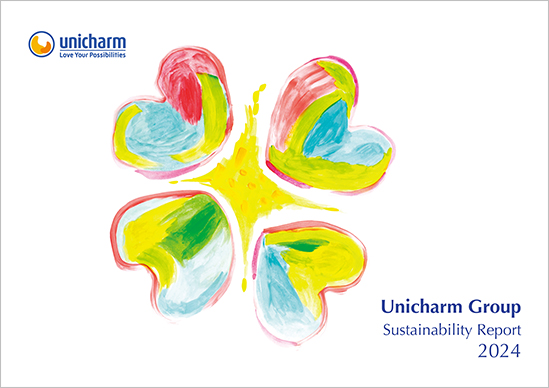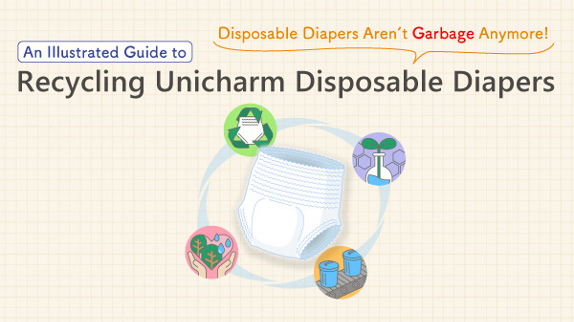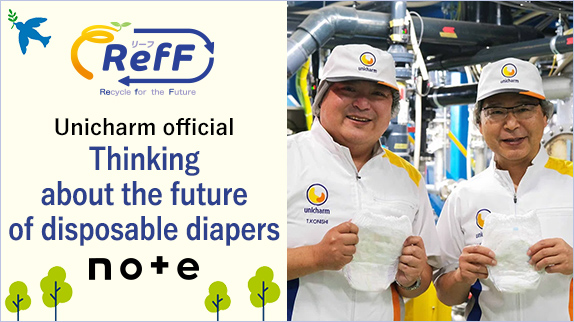
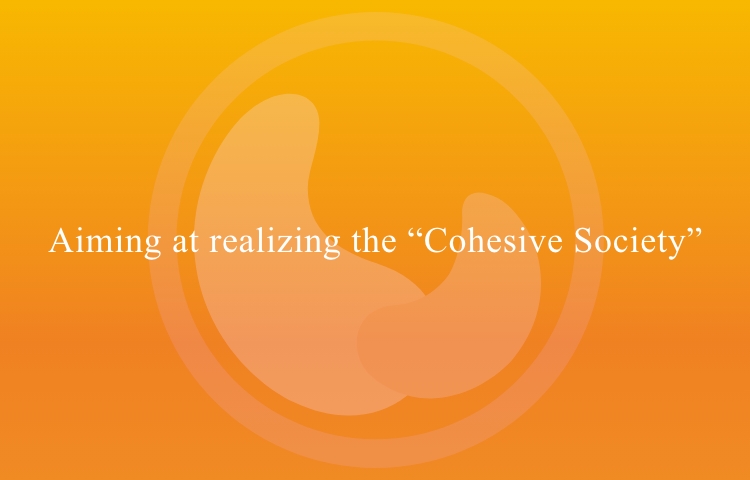
Sustainability
This report discloses information on the Unicharm Group’s sustainability initiatives. In addition to providing detailed information on the four themes of our Kyo-sei Life Vision 2030 medium- to long-term ESG goals, we worked to further enhance content from the viewpoint of strengthening our disclosure of ESG information.
Related information
Used Disposable Diapers Aren't Garbage Anymore! (first part)


